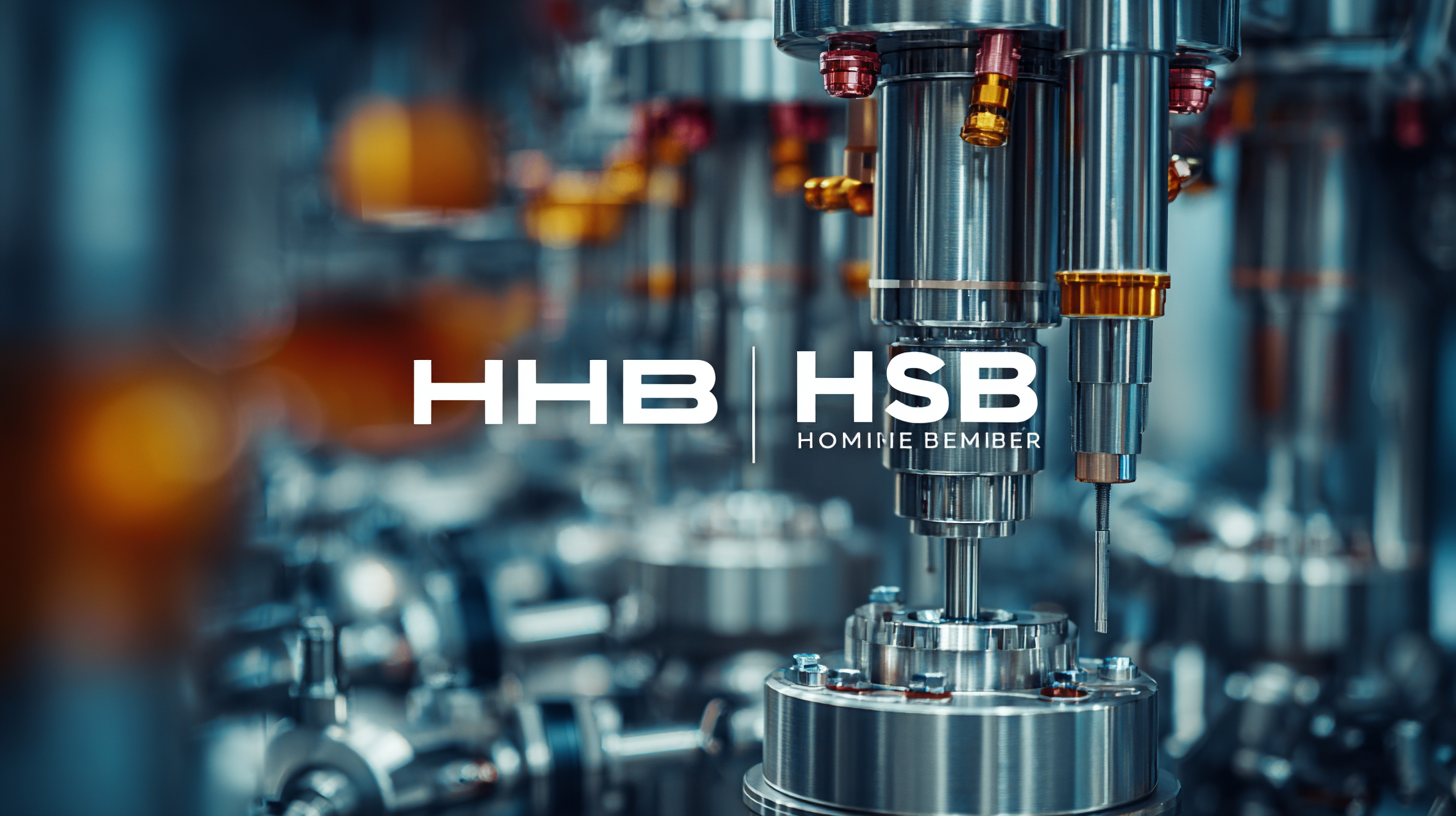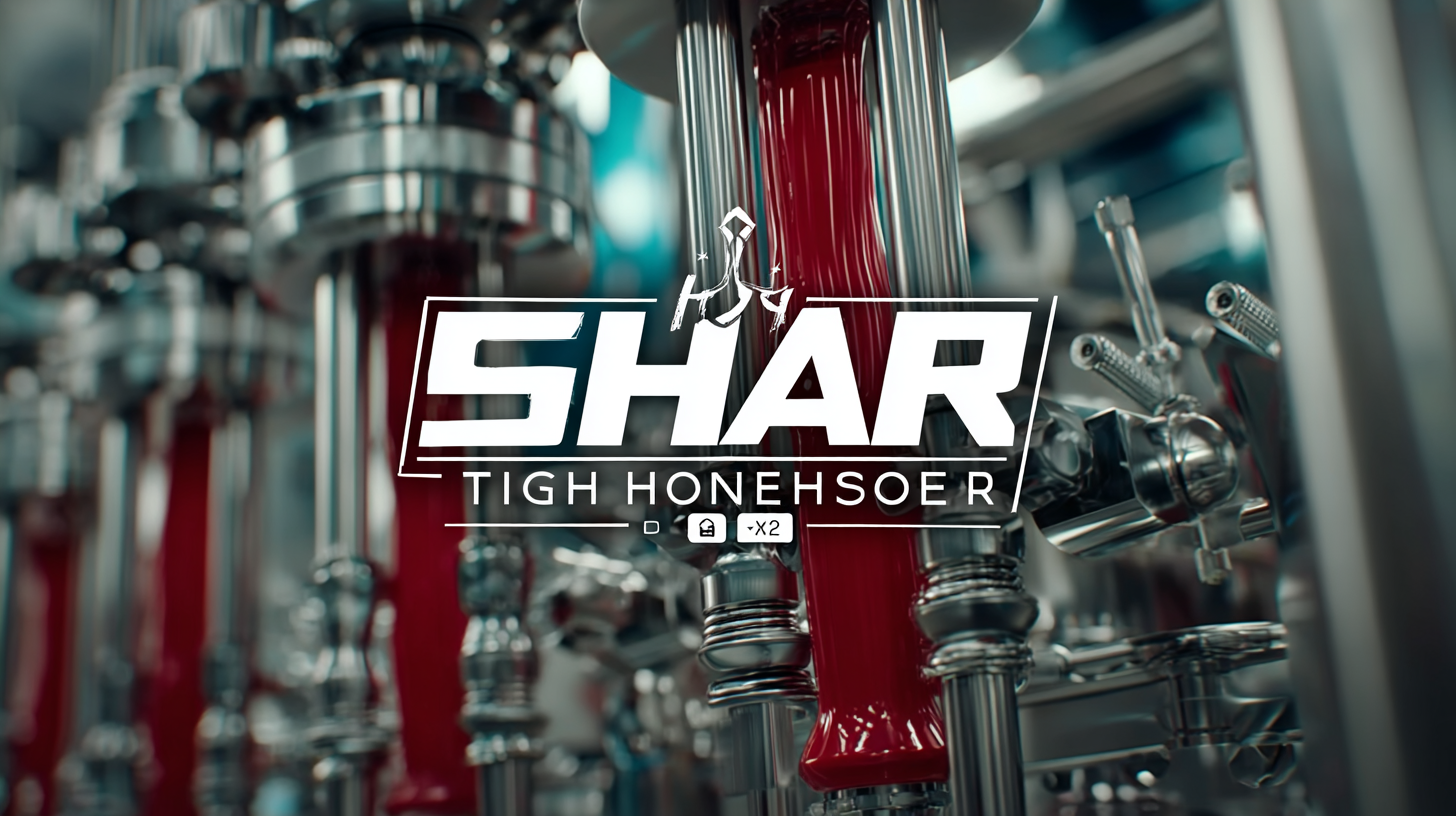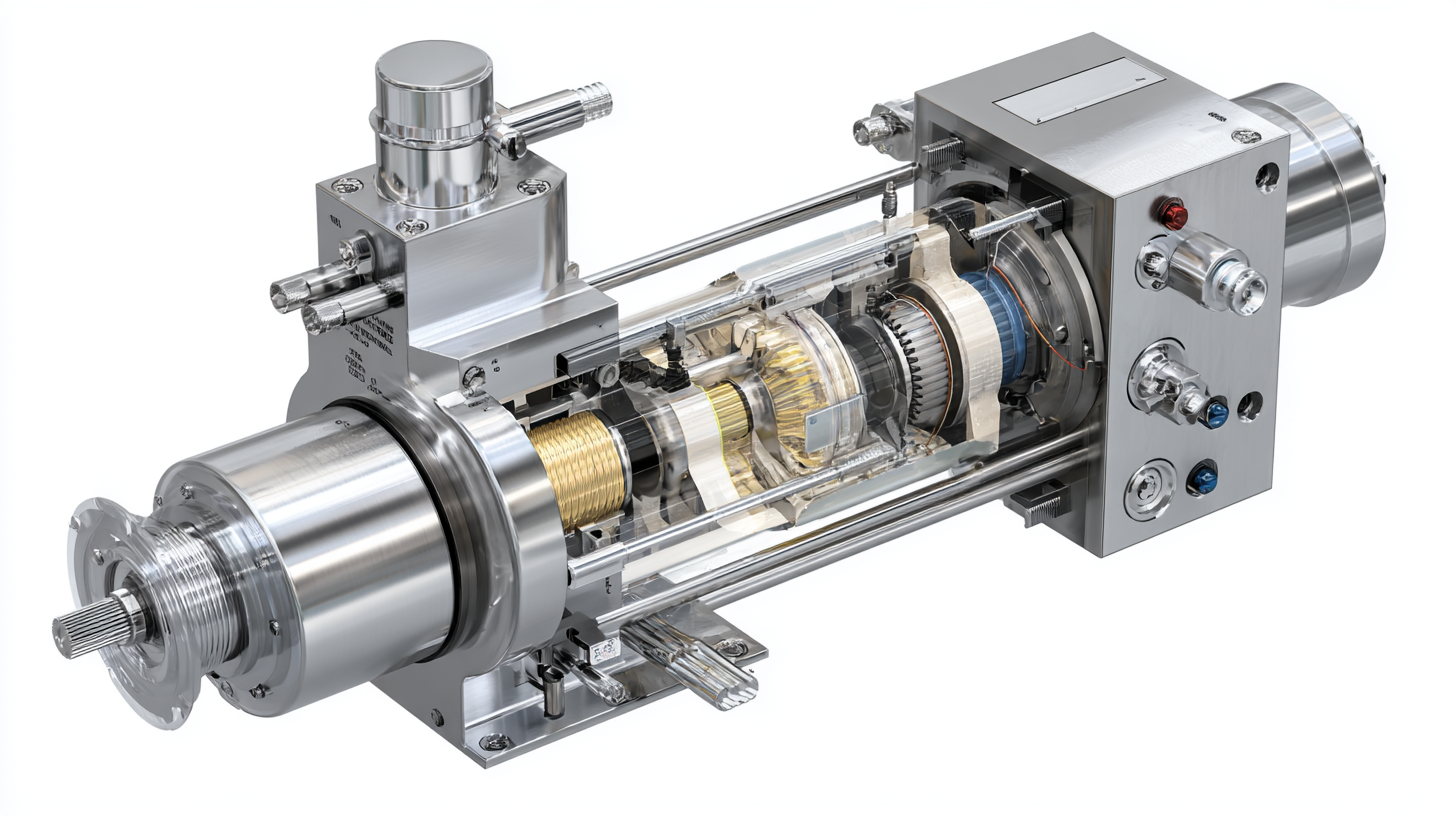
In the fast-paced landscape of modern manufacturing, selecting the right equipment can significantly impact product quality and production efficiency. A pivotal component in this realm is the High Shear Homogenizer, renowned for its ability to create uniform mixtures, emulsions, and dispersions critical in industries spanning pharmaceuticals to food processing. According to a recent market analysis by Grand View Research, the global homogenizer market is expected to reach over $700 million by 2026, with high shear homogenizers comprising a substantial share due to their efficiency in reducing particle size and enhancing product stability. As manufacturers strive for precision and consistency, understanding the factors influencing the selection of the best high shear homogenizer tailored to specific production needs is paramount. This guide will explore essential considerations and provide insights to help you make informed decisions in optimizing your manufacturing processes.

High shear homogenizers have undergone significant transformations over the years, becoming essential tools in various manufacturing sectors. Initially designed for the food industry, these homogenizers have evolved to meet the demands of pharmaceuticals, cosmetics, and even nanotechnology. The advancement in materials, design, and technology has enabled manufacturers to achieve finer emulsions and more uniform dispersions, greatly enhancing product quality and consistency.

Tips: When selecting a high shear homogenizer, consider the scale of production and the properties of the materials you'll be processing. Ensure the equipment can handle the viscosity and particle size requirements specific to your formulation. Additionally, invest in a model that allows for easy cleaning and maintenance, as this will impact overall efficiency and hygiene standards.
Moreover, keep an eye on innovations in technology, such as digital controls and smart monitoring systems. These features can significantly streamline your manufacturing process, ensuring precise adjustments in real-time. As industries continue to demand higher quality products with minimal variability, choosing the right equipment will play a crucial role in staying competitive in the market.
When selecting a high shear homogenizer for your manufacturing needs, understanding key features is crucial for ensuring efficiency and optimal performance. One of the primary considerations is shear force, which greatly influences the emulsification and particle size reduction capabilities of the homogenizer. According to a recent industry report by Research and Markets, the demand for high shear homogenizers is projected to grow at a CAGR of 7.5% through 2028, emphasizing the need for devices that can deliver consistent and reproducible results.
Another vital feature to consider is the homogenizer's capacity and adaptability. High shear homogenizers come in various sizes, catering to both small-scale and large-scale production processes. A study by Mordor Intelligence highlighted that equipment capable of processing batches ranging from 5 to 200 liters not only maximizes production efficiency but also ensures versatility in handling diverse formulations. Additionally, the ease of cleaning and maintenance plays a significant role in minimizing downtime, which can significantly impact overall productivity and operational costs. Thus, evaluating these features will help you select the ideal high shear homogenizer tailored to your specific manufacturing requirements.
| Feature | Importance | Recommended Specifications |
|---|---|---|
| Motor Power | Higher power ensures better mixing and emulsification. | 5 HP - 20 HP |
| Rotor/Stator Design | Efficient design increases shear rates for better quality. | Inline, batch, or adjustable configurations |
| Speed Control | Variable speed options enhance processing versatility. | 1000 - 6000 RPM |
| Capacity | Determines the volume of material that can be processed. | 1 L - 500 L per hour |
| Material Compatibility | Should withstand the chemicals being processed. | Stainless steel, ceramic, or Teflon options |
| Ease of Cleaning | Important for maintaining hygiene and reducing downtime. | Quick disassembly and CIP (Clean In Place) features |
| Noise Level | Lower noise levels improve working conditions. | < 85 dB |
In 2023, the demand for high shear homogenizers has reached unprecedented levels, driven by advancements in various industries such as pharmaceuticals, food and beverage, and cosmetics. As manufacturers seek innovative ways to improve product consistency and quality, high shear homogenizers have emerged as essential equipment that caters to these needs. The ability to produce stable emulsions, finely dispersed suspensions, and uniform particle sizes is pivotal in meeting the stringent quality standards set by regulatory bodies and consumers alike.
Moreover, the ongoing trend towards sustainability and efficiency continues to shape purchasing decisions in the manufacturing sector. High shear homogenizers not only enhance product quality but also optimize processing times and reduce waste. The shift in consumer preferences towards natural and organic products further emphasizes the importance of these machines, as they enable manufacturers to create stable formulations without compromising on ingredient integrity. Consequently, businesses are investing in high shear homogenizers that offer advanced technology and versatility to stay competitive in an ever-evolving market landscape.

When it comes to selecting the ideal high shear homogenizer for your manufacturing processes, a comparative analysis of the top brands can illuminate the best options available. Leading manufacturers like Silverson, Bosch, and GEA offer distinct features that cater to various industry needs, from pharmaceutical to food processing. Silverson’s innovative approach emphasizes versatility, allowing for quick changeovers and compatibility with diverse products. Bosch's homogenizers are renowned for their robust construction and efficiency, making them a reliable choice for large-scale operations. GEA stands out with its advanced technology that enables precise control over particle size distribution.
Tips to consider when choosing a homogenizer include evaluating your production scale and the viscosity of your materials. Determine whether features like adjustable speeds or interchangeable rotor/stator configurations are crucial for your applications. Additionally, consider the maintenance and support offered by the manufacturer; brands that provide comprehensive after-sales service can save you time and enhance equipment longevity. Don't forget to assess your budget while keeping an eye on long-term operational costs, as initial investments can lead to significant savings in productivity and efficiency over time.
High shear homogenizers play a critical role in enhancing product quality and consistency across various manufacturing sectors, including food, pharmaceuticals, and cosmetics. According to a report by Grand View Research, the global market for high shear mixers is projected to reach $7.37 billion by 2025, driven by the increasing demand for uniformity in products. This equipment effectively reduces particle size and ensures a homogenous mixture, which is crucial for achieving consistent texture and stability in products. For instance, in the food industry, the homogenization process helps in creating smoother sauces and dressings, which not only improves mouthfeel but also increases shelf life by preventing separation.
Moreover, the efficiency of high shear homogenizers in meeting stringent industry standards cannot be overstated. A study published in the Journal of Food Engineering found that high shear processing can increase the bioavailability of nutrients in emulsified products, directly affecting consumer satisfaction and health benefits. By incorporating advanced homogenization techniques, manufacturers can ensure that their products meet regulatory compliance and consumer expectations for quality. As product consistency directly impacts brand reputation and customer loyalty, investing in high shear homogenizers is pivotal for manufacturers aiming to enhance their operational effectiveness and product excellence.
